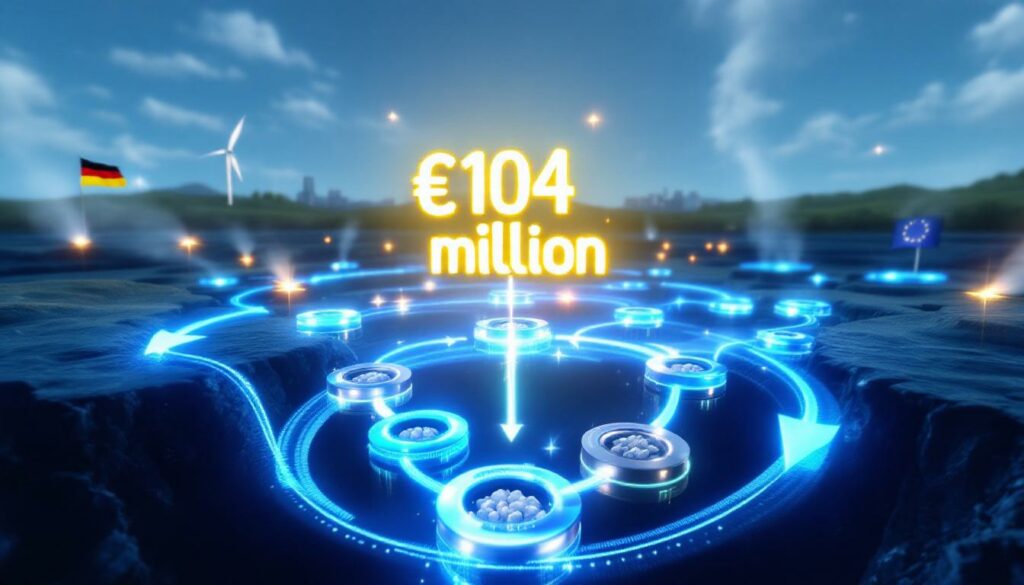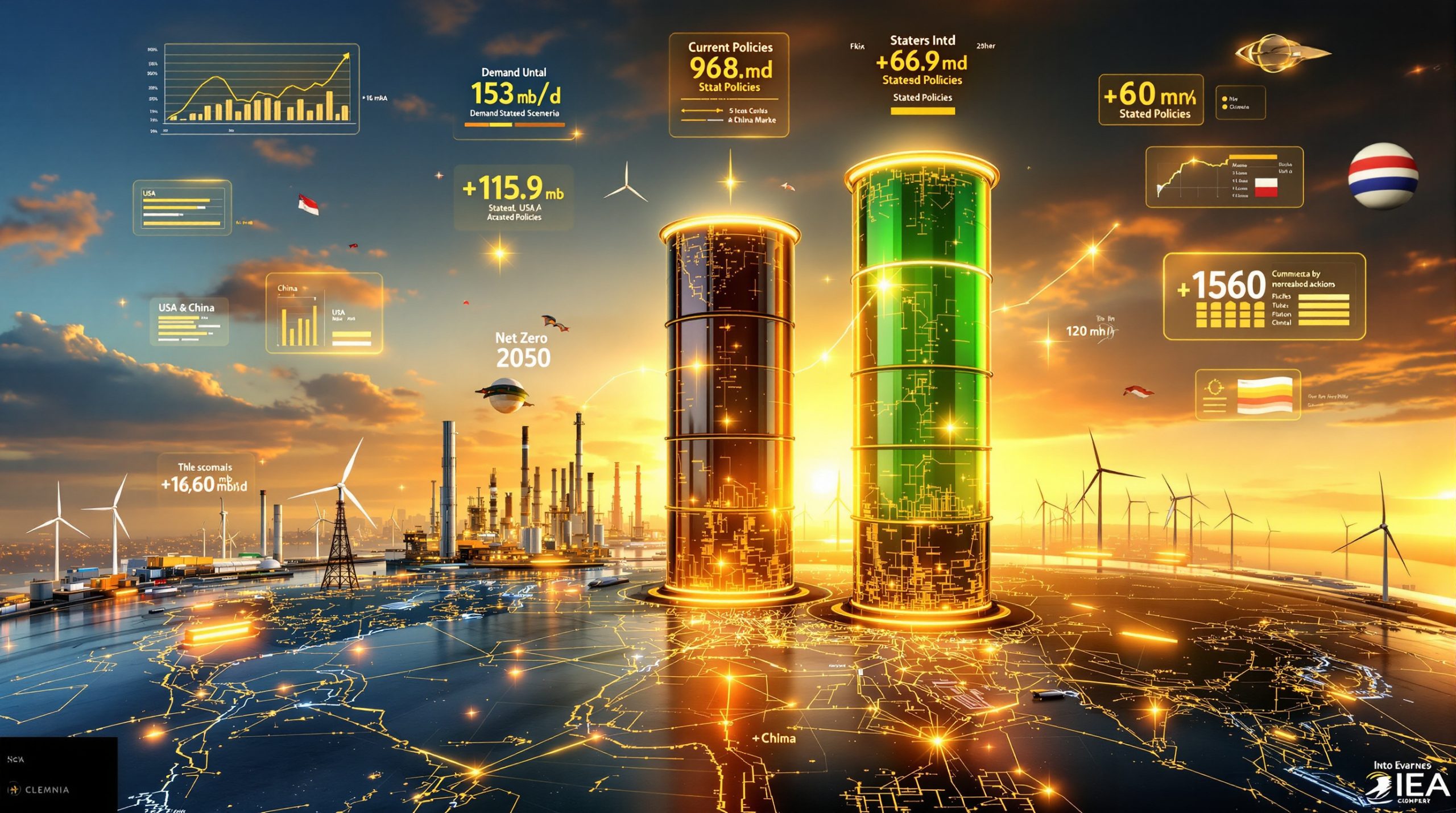Vulcan Energy Secures €104 Million in German Grants for Clean Lithium Production
The European push for energy independence reached a significant milestone with the announcement of substantial government funding for domestic lithium production. This strategic investment signals Germany's commitment to securing critical battery materials while advancing sustainable extraction technologies. With the latest Australia lithium innovations gaining momentum globally, Europe is now making its own strategic moves in this critical sector.
The Grant Package: Details and Strategic Importance
Vulcan Energy has secured €104 million ($122 million) in German government grants to develop clean lithium production facilities. This funding package represents a collaborative effort between the federal government and the states of Rhineland-Palatinate and Hesse, where the company's operations are centered.
The grant's disbursement will occur over a 36-month period beginning October 1, 2025, providing sustained financial support through the critical development phases of this pioneering project.
Why this matters: According to Vulcan Energy's announcement, the funding is "designed to assist with building Germany's and Europe's critical raw materials supply chain resilience." This reflects the growing recognition that battery materials represent a strategic vulnerability for European automotive manufacturing.
The timing of this investment coincides with the EU's broader push to reduce dependency on imported battery materials, particularly from China, which currently dominates global lithium processing capacity despite holding only a fraction of the world's lithium reserves. The development of European CRM facilities is crucial to addressing this dependency.
Zero-Carbon Lithium: How Vulcan's Technology Works
Vulcan Energy's Zero-Carbon Lithium™ project represents a significant departure from traditional lithium extraction methods. Unlike conventional approaches that rely on open-pit mining or extensive evaporation ponds, Vulcan utilizes geothermal energy to power a Direct Lithium Extraction (DLE) process from naturally occurring brines in the Upper Rhine Valley.
The process begins by extracting lithium-rich geothermal brines from deep underground reservoirs. These brines, heated naturally by the Earth's core, are brought to the surface where specialized DLE technology selectively captures lithium ions while allowing the remaining brine to be reinjected underground.
Key environmental advantages include:
- Near-zero carbon footprint throughout the production cycle
- Minimal land disturbance compared to hard-rock mining operations
- Significantly reduced water consumption versus South American evaporation methods
- Renewable geothermal energy generation as a valuable by-product
This closed-loop system addresses many of the environmental concerns associated with traditional lithium production, making it particularly attractive to European automakers facing increasingly stringent sustainability requirements. Many of these technologies align with broader sustainable mining transformation efforts happening globally.
Germany's Strategic Imperative for Domestic Lithium
Germany's automotive sector represents the industrial heart of Europe's largest economy, employing approximately 800,000 people directly. As this industry undergoes its most significant transformation in a century—shifting from internal combustion engines to battery electric vehicles—securing the supply chain has become a national priority.
The country's investment in domestic lithium production addresses several strategic objectives:
- Supply chain security: Reducing vulnerability to geopolitical disruptions or export restrictions from traditional lithium-producing regions
- Sustainability compliance: Meeting increasingly stringent EU regulations on battery carbon footprints
- Economic development: Creating high-skill jobs in clean technology sectors
- Technology leadership: Establishing expertise in advanced extraction methods that could be exported globally
By localizing critical stages of the battery supply chain, Germany aims to protect its automotive manufacturing base while positioning itself at the forefront of the clean mobility transition. This approach represents one of the significant mining innovation trends reshaping the industry.
The Upper Rhine Valley: Europe's Lithium Treasure
What makes Vulcan Energy's project particularly significant is its location. The Upper Rhine Graben (URG), a geological rift valley stretching across parts of Germany, France, and Switzerland, contains Europe's largest lithium resource in its deep geothermal brines.
These brines offer a unique advantage: they contain commercially viable lithium concentrations while simultaneously providing renewable geothermal energy. This dual-purpose resource creates a natural synergy that addresses two critical challenges—clean energy generation and battery material production—simultaneously.
The region's geological characteristics include:
- Lithium-rich brines at depths of 2,000-4,000 meters
- Natural temperatures exceeding 150°C, ideal for geothermal energy generation
- Proximity to major European automotive manufacturing centers
- Existing infrastructure and technical expertise in geothermal operations
This fortunate geological coincidence places a strategic resource directly beneath one of the world's most important automotive manufacturing regions.
Implementation Timeline and Production Capacity
While the grant disbursement begins in October 2025, Vulcan Energy has already been advancing through preliminary development phases. The 36-month funding period will support the company's ambitious production targets.
The implementation schedule follows a phased approach:
- Pilot plant operations to refine extraction methodologies
- Commercial facility construction during the grant period
- Scaled production ramp-up targeting European automotive demand
- Potential expansion to additional sites within the Upper Rhine Valley
When fully operational, the project aims to produce battery-grade lithium hydroxide while generating renewable geothermal energy as a valuable by-product, creating a carbon-neutral production cycle uniquely suited to European sustainability objectives. The integration of electrification in mining processes further enhances the project's environmental credentials.
Challenges and Technical Hurdles
Despite the promising outlook, Vulcan Energy faces several significant challenges in scaling its innovative technology to commercial levels. Direct Lithium Extraction from geothermal brines remains a relatively new approach, with limited large-scale commercial precedents globally.
Key technical challenges include:
- Optimizing lithium recovery rates from variable brine concentrations
- Managing scaling and precipitation issues in extraction equipment
- Ensuring consistent battery-grade quality throughout production cycles
- Balancing lithium extraction with efficient geothermal energy generation
Market challenges are equally significant, as the company must compete with established global producers who benefit from economies of scale and decades of operational experience. However, the increasing premium placed on sustainably sourced materials may provide a competitive advantage for Vulcan's zero-carbon approach, as highlighted in recent reports from Battery Industry.
Impact on Global Lithium Markets
The development of European lithium production capacity comes at a pivotal moment in global markets. Lithium demand is projected to increase dramatically over the next decade as electric vehicle adoption accelerates worldwide.
Vulcan's entry into production could influence global lithium markets in several ways:
- Diversifying supply beyond the traditional "lithium triangle" of Chile, Argentina, and Bolivia
- Establishing new environmental benchmarks for responsible production
- Creating competitive pressure for cleaner extraction methods globally
- Potentially moderating price volatility through increased supply diversity
While European production alone cannot satisfy global demand growth, it represents an important step toward a more distributed and resilient supply network for this critical battery material, according to Reuters analysis.
Investment and Economic Implications
The €104 million government grant provides essential foundation funding, but represents only a portion of the total investment required to bring the project to full commercial scale. Additional private capital will be necessary to complete development and reach production targets.
From an economic perspective, the project offers several potential benefits:
- Direct job creation in high-skill technical positions
- Development of specialized expertise that could be exported globally
- Reduced exposure to lithium price volatility for European manufacturers
- Potential technology licensing opportunities for similar geological settings worldwide
For investors, the government backing provides important validation while reducing some project risks, though technical execution and market dynamics remain important considerations.
FAQ: Key Questions About Vulcan's Clean Lithium Project
What makes lithium extraction "clean" in this context?
Vulcan's approach is considered "clean" because it uses renewable geothermal energy to power the extraction process, eliminating carbon emissions typically associated with lithium production. Additionally, the direct extraction technology avoids the extensive land and water use of traditional methods like evaporation ponds or open-pit mining.
How does this project support European automotive manufacturers?
European automakers benefit in several ways: proximity reduces transportation costs and emissions, locally-produced lithium helps meet increasingly stringent supply chain sustainability requirements, and diversified sourcing reduces vulnerability to supply disruptions or price volatility from traditional producing regions.
What precedent does this set for future critical mineral projects?
The Vulcan project establishes an important model for integrating renewable energy with critical mineral extraction. This approach could be replicated for other battery materials and in other regions with suitable geological conditions, potentially transforming how energy-intensive mining operations are powered.
How does this compare to other global lithium production methods?
Unlike South American operations that rely on solar evaporation of brine over many months, or Australian hard-rock mining that requires energy-intensive crushing and chemical processing, Vulcan's method extracts lithium directly from naturally occurring brines while generating renewable energy. This results in a significantly lower environmental footprint across multiple metrics including carbon emissions, water usage, and land disturbance.
Want to Stay Ahead of Major Mineral Discoveries?
Discover why significant mineral finds can lead to exceptional returns by exploring Discovery Alert's dedicated discoveries page, where our proprietary Discovery IQ model delivers real-time alerts on ASX mineral discoveries, giving you an immediate market advantage.




